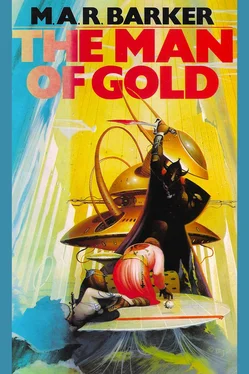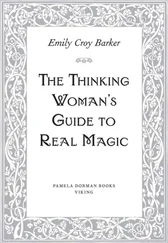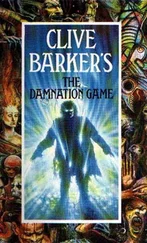M. Barker - The Man of Gold
Здесь есть возможность читать онлайн «M. Barker - The Man of Gold» весь текст электронной книги совершенно бесплатно (целиком полную версию без сокращений). В некоторых случаях можно слушать аудио, скачать через торрент в формате fb2 и присутствует краткое содержание. Жанр: Фэнтези, на английском языке. Описание произведения, (предисловие) а так же отзывы посетителей доступны на портале библиотеки ЛибКат.
- Название:The Man of Gold
- Автор:
- Жанр:
- Год:неизвестен
- ISBN:нет данных
- Рейтинг книги:3 / 5. Голосов: 1
-
Избранное:Добавить в избранное
- Отзывы:
-
Ваша оценка:
- 60
- 1
- 2
- 3
- 4
- 5
The Man of Gold: краткое содержание, описание и аннотация
Предлагаем к чтению аннотацию, описание, краткое содержание или предисловие (зависит от того, что написал сам автор книги «The Man of Gold»). Если вы не нашли необходимую информацию о книге — напишите в комментариях, мы постараемся отыскать её.
The Man of Gold — читать онлайн бесплатно полную книгу (весь текст) целиком
Ниже представлен текст книги, разбитый по страницам. Система сохранения места последней прочитанной страницы, позволяет с удобством читать онлайн бесплатно книгу «The Man of Gold», без необходимости каждый раз заново искать на чём Вы остановились. Поставьте закладку, и сможете в любой момент перейти на страницу, на которой закончили чтение.
Интервал:
Закладка:
Chtik p’Qwe picked up a blob of rust. “These lumps also contain artifacts, but their iron caskets have rusted away. The manuscripts are in Llyani, but in a difficult and cryptic hand- perchance you can help there. And this rod may be a power source, similar in function to the ‘Eyes’ made by the servants who preceded Llyan’s empire, even as he precedes ours. I have not been able to puzzle out its use, and mayhap its force is now gone. As with similar devices, it probably drew upon the energies of the Planes Beyond, which fill the gaps between each bubble of reality.”
“I have studied only the rudiments of that theory,” Harsan murmured.
“It is so? The ‘Layers of Reality’ were my specialty in our temple, and I submitted a treatise upon the topic as my Labour of Reverence for the Fourth Circle.”
“I fear I am not so far advanced.” He felt uncomfortable. “No matter. I shall explain.” The Pe Choi raised a thin hand in unwitting imitation of the statues of Feshmu’un, Tutor of the Gods, the Ninth Aspect of Thumis. “What we perceive is only the exterior of reality, like the bark upon a section of Mnosa- root. Beneath the bark run the fibres which contain the sweetness. Thus it is here: below the surface of the world we see, touch, smell, taste, and feel there are networks of invisible forces. Where these come together they create ‘nexus points,’ and there the power is stronger, mightier. Where no force lines run, there are ‘bare’ areas in which no sorcery operates. Long before Llyan of Tsamra the ancients learned to ‘reach through’ to this network with instruments and shape this power to their needs. Their wisdom created devices which pull, push, focus, and mould this energy to many purposes.”
“I have heard that the devices of the ancients are similar in their powers to the magical spells employed by the higher Circles of the Sorcerer Priests within the temples.”
“So it is. The ancients performed their wonders with instruments, but later our savants learned-to produce similar effects with no more than the strength of their minds. It may be for this reason that the arts of making these devices are forgotten. That knowledge was lost before the Time of Darkness, though a few maintained it even into the Latter Times which preceded all of our historical empires. Now those who have the talent use their minds to ‘reach through,’ employing such aids as mnemonic words, gestures, thought attitudes, and even substances. This is what is called ‘magic’ by those who know not the truth.”
“I have seen such spells. On the day of the Visitations of the Wise the senior priests of our monastery create mighty illusions to entertain the populace: ancient sages who stride forth from the high altar chamber bearing books and scrolls and emblems. Some of these phantasms are even made to speak learned words and give moral instruction; 'others scatter fantastic flowers over the crowd, and these turn into bright Kheshchal-birds and fly away-”
The Pe Choi opened his long, toothed beak in a copy of a human smile. “As you say. But all is not illusion. There are ways of ‘reaching through’ and turning energy into substance-or substance into nothingness.” He took up a reed pen from the table. “Observe.”
The skeletal fingers made a twisting gesture, and the Pe Choi hummed a single sonorous syllable deep in his throat. The pen appeared to turn over in his hand. Then it was gone.
Harsan was intrigued. The supercilious Sorcerer Priests of the monastery had performed such tricks, but he had not been considered advanced enough to study these arts. “Can you make it return?”
“Certainly. It is just a sort of ‘reaching around the comer.’ ” The Pe Choi made a second gesture, and the pen was back in his hand again. Harsan put out a finger to touch it-and jerked back in surprise. The pen was now deathly cold.
“One must be cautious; an object thus brought back cannot be held long in soft human fingers! ‘Around the comer,’ as I call it, is not a place for the living. I have heard that certain sages have put their heads there to see what is to be seen, and have been dragged back with eyes burst and blood running from their noses and frozen upon their cheeks. Dead as stones, and all within a trice!”
“Can you teach me to do this thing?”
The lambent green eyes came near, and the yellow-slit pupils looked full into Harsan’s own brown eyes. “I can try, if you are so willed, and if you have the talent. Teach me Llyani, and I shall teach you this.”
“Agreed.” In spite of himself Harsan felt himself warming to this strange travesty of a Pe Choi.
They spent the better part of the afternoon at it. The two priests of the Lords of Change did not return, and none came to disturb them until they heard the evening guard detail clattering down the corridor to relieve their comrades. By this time Harsan had at least touched the terrible cold of “around the comer” twice or thrice, although he had no success at making anything travel to or from that curious, alien space.
Chapter Nine
Four sat together in a room that was not a room, in a place that was not a place, and in a time that was timeless. Sparks of colourless light swam lazily to and fro, fish in a pool that had never known water.
The first was a man attired in the silver-chaised, engraved armour of the city of Dharu, the Forge of Yan Kor. He was in his early middle years, massive as the plinth of a fortress, heavy through the shoulders and upper arms, and almost without a neck, his shaven head seeming to sit directly upon his torso. His breastplate, pauldrons, and gorget of fine steel exaggerated this massiveness. His was an imposing figure of physical power, although if one looked closely, certain softnesses of cheek and jowl revealed concessions made to age. Two creases ran down from his broad-winged nose past shaven lips to a square-cut black beard shot with silver, as ravines run down from a headland to the foam-tipped waves of the sea. Yet his most arresting feature, perhaps, were his eyes: green-glinting black, level, stem beneath the jutting eaves of his brows-and possibly a trifle mad.
The second was also a man, but cast by a different potter upon another wheel. Earth-hued robes hid his body, and he might thus have been slender or stout, old or young. Somehow, even so, he had the air of one who is young but who has never experienced youth. This man sat motionless as an idol of clay, corpse-hued hands folded before him upon his knees, the nails like chips of ochre flint. His features were concealed by a sombre cowl, but the light from above-which had no source and cast no shadow- touched a jaw painted bone-white, the colour of a skull.
The third who sat in that group might have been a man-and might have been something quite other. He was reed-thin, of no age determinable, sallow-saffron of skin, with a cap of dead black hair held by a curiously wrought fillet of silver and obsidian. He wore a slashed tunic of purple and ebon and russet which was cut loose and might thereby hide any number of anomalies of form. No pupils were visible in his eyes, and these glinted now black, now red, like marbles of translucent glass.
The fourth was most definitely not a man. Rich coppery-brown skin and sepia-hued fur rippled in the pallid light. A fanged animal snout, up-tilted ears, and a heavy-ridged brow made the creature a demon out of legends old before man had walked upon Tekumel. Save for a harness of studs and links and bosses, the being was nude. Scarlet eyes, like rich rubies, stared down at a luminous blue-glowing orb cupped between six-fingered paw-like hands.
The first man spoke in a grating, foreign voice. “You sought this council. Why?”
The second replied in a higher, mellower tone, a voice without emphasis or intonation, like the base-note of some sad threnody. “They near the goal. If more is not done, what was concealed will be opened.”
Читать дальшеИнтервал:
Закладка:
Похожие книги на «The Man of Gold»
Представляем Вашему вниманию похожие книги на «The Man of Gold» списком для выбора. Мы отобрали схожую по названию и смыслу литературу в надежде предоставить читателям больше вариантов отыскать новые, интересные, ещё непрочитанные произведения.
Обсуждение, отзывы о книге «The Man of Gold» и просто собственные мнения читателей. Оставьте ваши комментарии, напишите, что Вы думаете о произведении, его смысле или главных героях. Укажите что конкретно понравилось, а что нет, и почему Вы так считаете.











